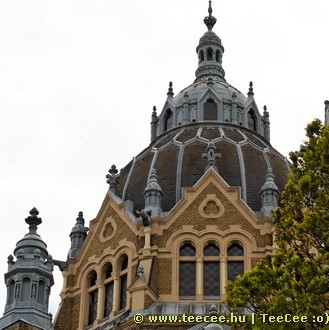Goal and Scope
The ESEC/FSE 2011 New Ideas track provides researchers with a forum to promote new and original research projects, to seek feedback on novel directions in a research program, and to discover opportunities for new research collaborations.
New Ideas submissions are intended to describe a single and well-defined idea at an early stage of investigation. As opposed to regular research papers, New Ideas papers are not intended to serve as a vehicle for the dissemination of research results. Submissions to the New Ideas track should describe research in progress. Authors of contributions to other tracks are welcome to also submit a paper to the New Ideas track if a specific aspect of their research meets the goal of the track.
Presentation and publication
The New Ideas Track will accept submissions in two different categories: Posters (2 pages), and Papers (4 pages). Authors of accepted posters will be invited to briefly advertise their work in the New Ideas session and to present a poster at the conference; Authors of accepted papers will be invited to present a brief talk on their research and to present a poster at the conference.
At least one author of each accepted paper must register and attend ESEC/FSE 2011 in order for the paper to be published in the proceedings. Accepted New Ideas papers will be allocated 4 pages in the main conference proceedings. Accepted poster submissions will not appear in full in the proceedings, but their title and authors will be listed in the proceedings. Authors who submit in the a New Ideas track jointly with another track can choose the poster category to avoid dual submissions.
How to submit
All submissions must be in English. Submissions must be in PDF format. Papers must be submitted electronically through the New ideas Track submission site.
New Ideas submissions:
- Must not exceed 2 or 4 pages in the ACM proceedings format, including all text, references and figures (for posters or paper submissions, respectively).
- must explicitly answer the following questions in the submission: What is the new idea? Why is it new? What is the single most related paper by the same author(s)? By others? What feedback do the authors expect from the forum? Addressing these questions in explicit, distinct sections is strongly recommended.
- for submissions in the paper category: must not have been previously published, nor be under consideration for publication, elsewhere.
Review and evaluation criteria
Each submission will be reviewed by at least three members of the program committee. The main evaluation criteria will include the demonstrated or argued novelty and originality of the idea, the clarity of the idea's description, and the relevance of the idea to the themes of ESEC/FSE. Submissions in the poster category should provide some preliminary evidence of the feasibility of the idea. Submissions in the paper category should report on some preliminary investigation of the idea. A complete evaluation of the idea is neither necessary nor expected for New Ideas submissions.
Important Dates
- Submission date: June 12, 2011
- Notification date: July 1, 2011
- Camera ready date: July 8, 2011
New Ideas Track Chair
Martin Robillard
McGill University, Canada
New Ideas Program Committee
- Andrew Begel, Microsoft Research (USA)
- Eric Bodden, Darmstadt University of Technology (Germany)
- Paulo Borba, Federal University of Pernambuco (Brazil)
- Travis Breaux, Carnegie Mellon University (USA)
- Cristian Cadar, Imperial College London (UK)
- Antonio Carzaniga, University of Lugano (Switzerland)
- Li-Te Cheng, IBM Watson Research Center (USA)
- S.C. Cheung, Hong Kong University of Science and Technology (China)
- James Clause, University of Delaware (USA)
- Irina Coman, Free University of Bolzano (Italy)
- Ivica Crnkovic, Malardalen University (Sweden)
- Krzysztof Czarnecki, University of Waterloo (Canada)
- Laurence Duchien, INRIA - University of Lille (France)
- Sebastian Elbaum, University on Nebraska, Lincoln (USA)
- Paul Gruenbacher, Johannes Kepler University Linz (Austria)
- John Grundy, Swinburne University of Technology (Australia)
- Reid Holmes, University of Waterloo (Canada)
- Paola Inverardi, University dell'Aquila (Italy)
- Christine Julien, University of Texas at Austin (USA)
- Natalia Juristo, Universidad Politécnica de Madrid (Spain)
- Walid Maalej, Munich University of Technology (Germany)
- Tim Menzies, West Virginia University (USA)
- Narayan Ramasubbu, Singapore Management University (Singapore)
- Wilhelm Schafer, University of Paderborn (Germany)
- Willem Visser, Stellenbosch University (South Africa)






















